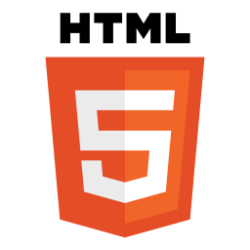Internal linking is a very easy way to strengthen your website while providing a better resource for your visitors.

I like to think of my websites like castles. The pages on the site are the towers and the links between the pages are the walls of the castle. The better your internal linking, the stronger your walls will be and the more powerful your overall defenses will be.
Logical Internal Linking
When you write, if you reference something you have previously talked about, link to that article. You don’t need to be fastidious with your anchor text, but if you can use the title of the page (which should have your keyword in it) or a modified version of the keyword, you should do so. But don’t sacrifice the quality of your writing to do it.
If the article you’re linking to is long, consider linking to the spot in the article where you talk about that specific thing. The code to do this is:
- On the target page, right before the part to which you want to link, put
id=”keyword”
in the paragraph or header, replacing the keyword in red with your keyword (or anything – just as long as it’s unique to that page). - Then your link in the source page will be
<a href=”http://yourdomain.com/target-page/#keyword>Link Text</a>
changing the parts in red to the target url, the keyword and your anchor text
The # acts as a marker, so you’re telling the browser “when someone clicks this link, take them to this page, then scroll down automatically to this part of the page”.

You don’t have to use the keyword. Part of that is helping with SEO, but mainly we use it for making it easier to remember what it’s for when you look later.
Take It To The Next Level
To take this to the next level, go through some of your old posts and do some internal linking. Don’t go overboard with this, but you may well have explained things better in later posts. Visitors to the old posts may benefit from your better explanations or deeper exploration. It’s good for visitors and good for search engines, so that’s just good for business.
One way to find these link opportunities is simply to do a search on your site. You’ll pick up a lot there.
Also, go to Google and search for:
site:yourdomain.com “target phrase”
Make sure your target phrase is in quotes or you’ll probably get too many options. If you’re running a wordpress site, you’ll be better to search for:
site:yourdomain.com “target phrase” -inurl:tag
As this will remove all the tag pages from the results that have /tag/ in the url. It can get a little confusing if you leave them in there for this search.
Since originally writing this article, I have started adding “noindex, follow” directives to tag pages, or not using tags, so the second directive isn’t as useful any more.
Setup A Definitions Page
It’s likely you have some industry jargon or particular processes specific to your business. If so, think about creating a “Definitions” page. You can add to it over time as you think of more to add to it. If you use ids on the headings, you can reference the exact definition easily. This will also help your users, customers and prospects understand what you’re talking about and how your products or services might be able to help them.


Leave a Reply